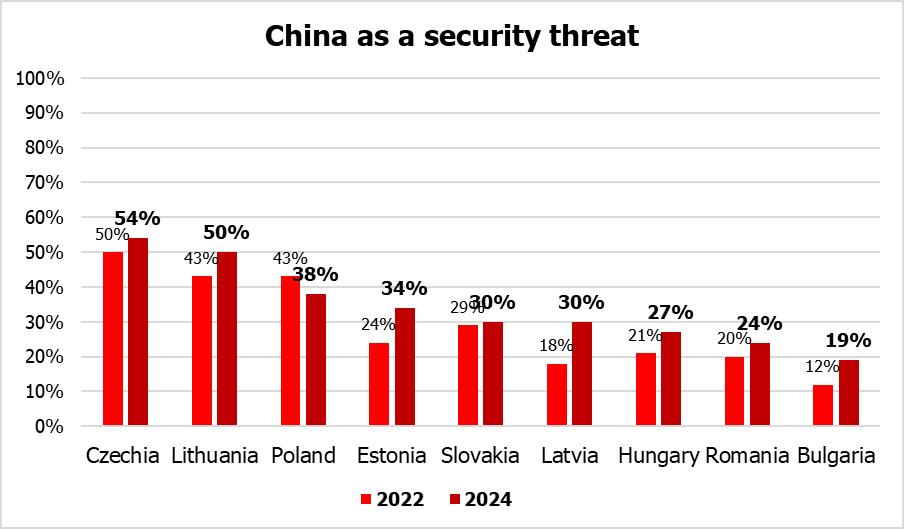Opinion
How bad is Chinese spying in eastern Europe?
The recent spike of uncovered espionage activities linked to China across Europe has heightened concerns about Beijing's activities and its impact on European security. In April alone, German authorities made headlines by arresting an aide from the European Parliament on serious espionage charges for allegedly passing sensitive information to Chinese intelligence, and in a separate case, three individuals in Germany were detained for supposedly transferring military technology to China.
Adding another layer to these unfolding tensions, Chinese president Xi Jinping's recent trip to Europe, notably his stop in France where he celebrated the 60th anniversary of diplomatic relations between China and France, Hungary and Serbia, was overshadowed by significant trade disputes.
During his visit, discussions were not just ceremonial but intensely strategic, focusing on trade issues that have become a point of contention between Beijing and Brussels.
The European Union, shedding its previous naiveté, has launched anti-dumping investigations targeting Chinese exports like electric cars and solar panels, aiming to protect its market from unfairly subsidised products.
These developments occur against a backdrop of growing wariness within central and eastern Europe (CEE) regarding China's intentions.
A recent GLOBSEC Trends report highlights a shift in public perception across the region, with an increasing number of people recognizing China as a security threat.
Although the perception remains significantly lower compared to concerns about Russia, the deepening alliance between China and Russia, especially post-Ukraine invasion, has heightened the sense of urgency to address these threats.

Countries like the Czech Republic and Lithuania have been vocal about their concerns, with a majority now viewing China as a significant security threat. The Czech republic has officially designated China as a security threat alongside Russia in its strategic documents and has established more robust contacts with Taiwan in recent years, leading to China threatening the Czech Senate Speaker.
Lithuania has also had firsthand experience with China's economic coercion after enhancing its diplomatic ties with Taiwan. In retaliation, China imposed a de facto trade embargo on Lithuania and disrupted European markets by banning goods containing Lithuanian components.
Overall, the perception of China as a security threat across the CEE region remains relatively low at 34 percent, significantly less than the perception of Russia. This discrepancy highlights a potential gap in public awareness and understanding of the complexities of China's foreign policy and espionage activities. As China continues to expand its economic, political, and military influence, its strategies appear focused not only on immediate gains but also on long-term shifts in global alignments.
This approach includes influence operations aimed at reshaping political landscapes, leveraging economic dependencies, and fostering strategic dependencies.
Yet, there are countries in the region actively seeking deeper economic relationships with China. In Hungary, the government has supported and promoted Chinese investments for years, which is also reflected in 34 percent of respondents in Hungary selecting China as the second most important strategic partner for the country, according to the GLOBSEC report.
The newly-elected government in Slovakia has also announced plans to deepen its relationship with China and seek Chinese financing for local public-private partnership (PPP) projects.
The CEE, like the rest of Europe, finds itself at a crossroads, needing to balance economic interests with national and regional security. The varied perceptions of China's threat across different member states underscore the need for a more coordinated and comprehensive strategy that addresses both the overt and subtle dimensions of China's influence.
CEE countries and international stakeholders need to continue building awareness and adopt common policy measures against Chinese malign influence. While geographical distance might contribute to lower threat perceptions, information sharing about Beijing's activities in the region is crucial.
Author Bio
Jana Kazaz is Centre for Democracy and Resilience fellow at the GLOBSEC think-tank in Bratislava, specialising in research on information operations and hybrid threats.
Tags
Author Bio
Jana Kazaz is Centre for Democracy and Resilience fellow at the GLOBSEC think-tank in Bratislava, specialising in research on information operations and hybrid threats.